Get Air Quality Testing Services in Boise, ID
Air Quality Testing Services help Boise property owners identify indoor pollutants, mold, or asbestos issues, supporting residential and commercial projects requiring safe, healthy environments.
Understanding indoor air quality is an important step for property owners in Boise, ID, especially as concerns about healthy living environments grow. Air quality testing services help identify potential issues such as airborne pollutants, mold spores, or allergens that could impact the comfort and safety of a space. Whether planning a renovation, addressing persistent health concerns, or simply seeking peace of mind, exploring options for professional testing can provide valuable insights tailored to local conditions.
Property owners interested in maintaining a safe and comfortable environment can benefit from comparing local contractors who specialize in air quality testing. These service providers are equipped to assess various indoor environments and offer practical solutions based on their findings. Continuing to explore available options can help ensure that the right professionals are chosen to meet specific needs, making informed decisions easier as part of project planning.
- Indoor Air Quality Testing - when residents notice persistent odors or unexplained allergy symptoms inside their homes or apartments.
- Environmental Testing for Mold - if there are visible mold growth or water damage in basements, bathrooms, or attics in Boise neighborhoods.
- Particle and Dust Testing - for those experiencing increased dust buildup or respiratory issues in homes located near busy roads or industrial areas.
- VOC (Volatile Organic Compounds) Testing - when chemical odors or fumes are detected from household products or renovation activities.
- Air Purity Assessments - for property owners seeking to improve air quality before occupancy or after renovations in local commercial spaces.
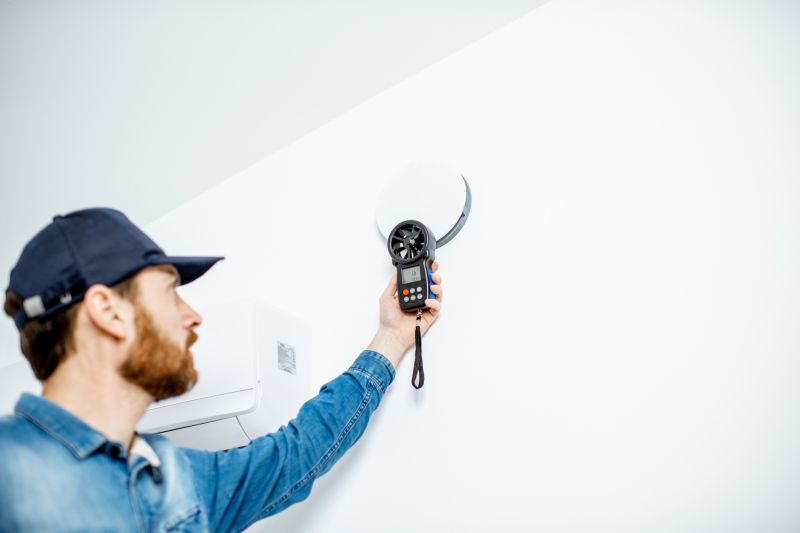
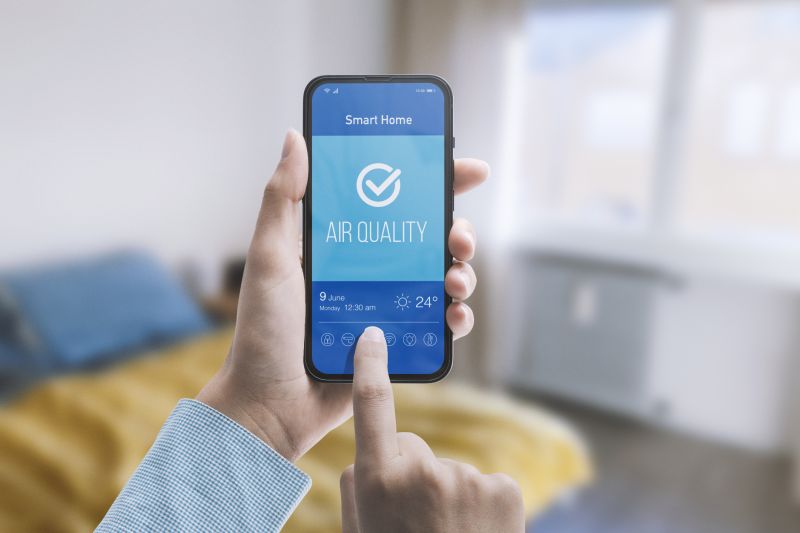
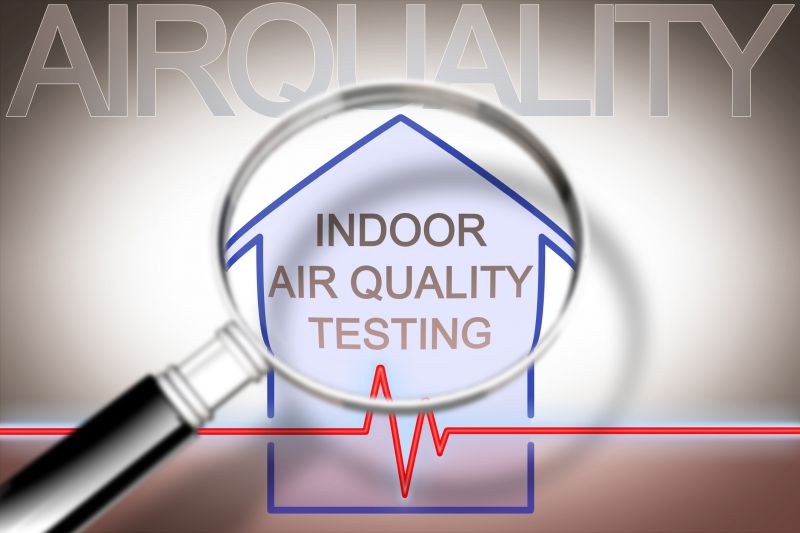
Air quality testing services involve the use of specialized equipment to measure the levels of pollutants, allergens, and other airborne particles within a property. These tests can identify issues such as elevated levels of dust, mold spores, volatile organic compounds (VOCs), and other contaminants that may affect indoor air quality. By collecting air samples and analyzing them in a laboratory or on-site, trained contractors can determine if the air inside a home or commercial space meets healthy standards or if further action is needed. This process provides clear insight into the current state of indoor air and helps identify potential sources of pollution that might not be visible to the naked eye.
These testing services are especially useful in addressing problems like persistent allergies, unexplained respiratory issues, or noticeable odors that linger indoors. They can also help detect hidden mold growth behind walls or in damp areas, which can contribute to health concerns over time. Property owners who have recently experienced water damage, renovations, or suspect the presence of mold or chemical fumes often turn to air quality testing to pinpoint the cause of indoor discomfort. Additionally, these services can be valuable for detecting pollutants caused by household products, cleaning supplies, or nearby outdoor sources that may be affecting indoor environments.
A wide range of properties benefit from air quality testing, including single-family homes, apartment complexes, and multi-unit buildings. Commercial spaces such as offices, retail stores, and restaurants may also require testing to ensure a safe environment for employees and customers. Properties that have experienced recent water leaks, flooding, or renovations are particularly likely to need testing to confirm that airborne contaminants are within safe limits. Homeowners concerned about ongoing allergy symptoms or unusual odors, as well as property managers overseeing multiple units, often seek out these services to maintain a healthy indoor environment and address potential issues proactively.
When considering air quality testing, it’s important to work with experienced local contractors who understand the specific concerns common to Boise, ID, and surrounding areas. These professionals can recommend appropriate testing methods, interpret results accurately, and suggest suitable next steps if problems are identified. Whether dealing with visible mold, lingering odors, or unexplained respiratory symptoms, property owners can contact trusted service providers to gain a clearer understanding of their indoor air quality. This step can be a crucial part of maintaining a safe, comfortable space for everyone inside.
The overview below groups typical Air Quality Testing Services projects into broad ranges so you can see how smaller, mid-sized, and larger jobs often compare in Boise, ID.
In many markets, a large share of routine jobs stays in the lower and middle ranges, while only a smaller percentage of projects moves into the highest bands when the work is more complex or site conditions are harder than average.
Basic Testing - typical costs for routine air quality tests range from $250 to $600 for many smaller jobs. Most standard assessments fall within this range, covering common indoor pollutants. Larger or more complex projects may cost more, but they are less common.
Comprehensive Assessments - more detailed testing that evaluates multiple air quality factors generally costs between $600 and $1,200. These services are often chosen for thorough investigations of indoor environments with suspected issues.
Specialized Testing - testing for specific contaminants like mold or asbestos can range from $1,000 to $3,000 depending on the scope. Many projects in this category are mid-sized, but larger investigations for extensive contamination can push costs higher.
Full System Replacement - replacing or upgrading air filtration systems or HVAC components typically costs $2,500 to $5,000 or more. Larger, more complex installations or replacements can reach $10,000+, though these are less frequent than standard testing jobs.
Actual totals will depend on details like access to the work area, the scope of the project, and the materials selected, so use these as general starting points rather than exact figures.
Indoor Air Quality Assessments - professionals who evaluate ventilation systems and identify pollutant sources within residential or commercial spaces share skills with air quality testing services.
Environmental Monitoring Projects - projects involving the measurement of airborne particles, gases, or allergens utilize similar tools and planning methods as air quality testing services.
HVAC System Inspections - inspecting and diagnosing issues in heating, ventilation, and air conditioning systems often require knowledge of airflow and pollutant control, aligning with air quality testing expertise.
Pollutant Source Identification - efforts to locate and analyze sources of indoor contaminants involve planning and testing techniques comparable to air quality assessments.
Building Ventilation Optimization - projects aimed at improving airflow and air exchange rates rely on testing and analysis methods similar to those used in air quality testing services.
Radon Testing Services - measuring radon levels in homes and buildings employs testing procedures and planning strategies akin to general air quality evaluations.
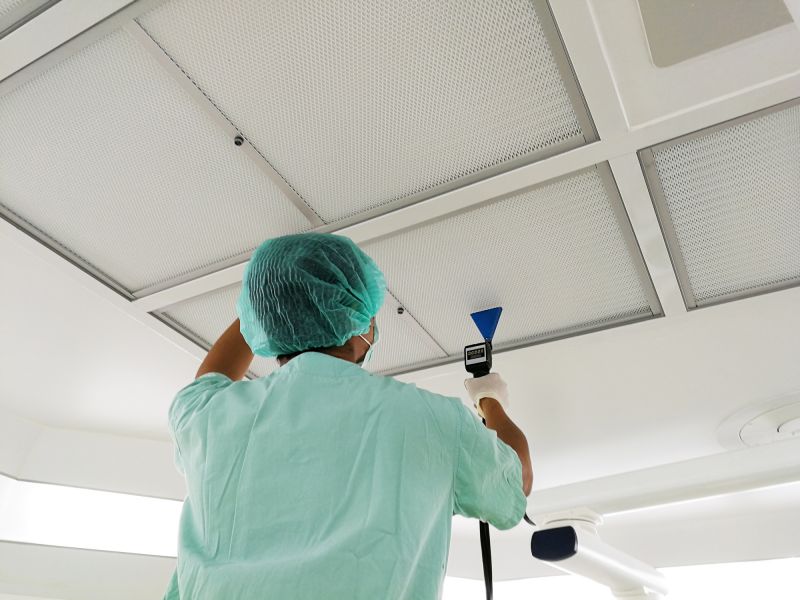
When comparing service providers for air quality testing, it’s important to consider their experience with similar projects in Boise and nearby areas. A contractor with a history of handling air quality assessments can offer insights into what to expect and demonstrate familiarity with local environmental conditions. This experience can help ensure that the testing methods used are appropriate for the specific concerns in the region, providing confidence that the results will be accurate and relevant.
Clear, written expectations are essential when evaluating potential contractors. These should outline the scope of testing, what the process entails, and how the results will be communicated. Having detailed information upfront helps prevent misunderstandings and ensures that homeowners understand what services will be provided. Service providers who can articulate their approach in writing demonstrate professionalism and a commitment to transparency, making it easier to compare options objectively.
Reputable references and strong communication are key factors to consider when selecting air quality testing specialists. Local contractors with positive feedback from previous clients indicate a track record of reliable service. Additionally, good communication-such as prompt responses, clarity in explanations, and willingness to answer questions-can make the process smoother and more manageable. It’s important to remember that this site introduces homeowners to local options, serving as a resource to help find qualified service providers rather than performing the testing itself.
Property owners in Boise, ID use Air Quality Testing Services services for practical projects around their homes and businesses. This guide focuses on everyday jobs and straightforward project options.

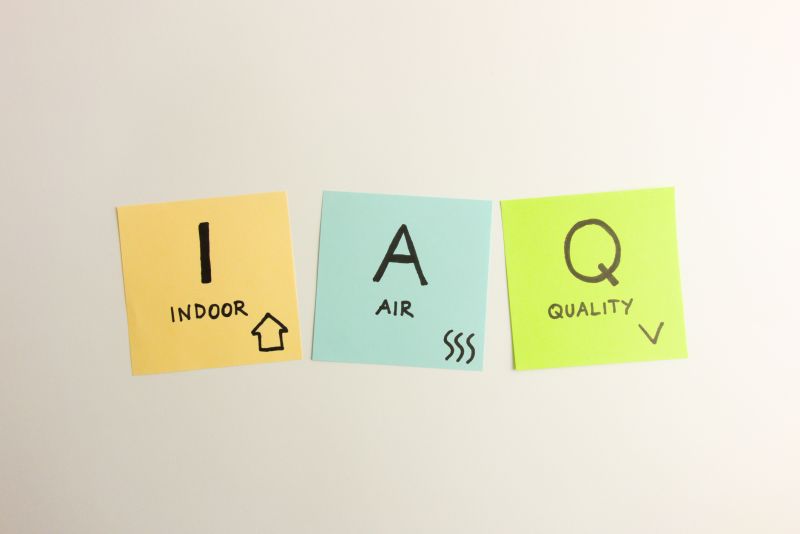
Air quality testing services are often needed in Boise, ID when property owners notice signs of indoor air issues, such as persistent odors, allergies, or unexplained respiratory discomfort. Homeowners and business owners may seek testing after renovations, water damage, or if they suspect mold, dust, or other airborne contaminants are affecting the environment inside their buildings. Local contractors can provide the necessary assessments to identify potential problems and help ensure that indoor spaces remain safe and comfortable for occupants.
In addition, property owners involved in real estate transactions or preparing spaces for new tenants might consider air quality testing to meet health standards or address concerns raised during inspections. Whether managing a residential property or commercial space, many in Boise turn to local service providers to conduct thorough testing and offer guidance on any necessary remediation steps. Connecting with experienced professionals can help address indoor air concerns effectively and support healthier living and working environments.
What is air quality testing? Air quality testing involves assessing indoor or outdoor air to identify pollutants, allergens, and contaminants that may affect health or comfort.
How do air quality testing services work? Service providers typically collect air samples using specialized equipment and analyze them to detect common pollutants and environmental factors.
Why should I consider air quality testing? Testing can help identify sources of indoor air pollution, improve air safety, and ensure a healthier environment in homes or workplaces.
What types of pollutants can air quality testing detect? Testing can identify airborne allergens, mold spores, volatile organic compounds (VOCs), particulate matter, and other common indoor pollutants.
How can I find local contractors for air quality testing? You can contact service providers in your area who specialize in air quality assessments to compare options and connect with a professional.
Indoor Air Quality Assessment - Property owners can identify potential pollutants inside their homes or workplaces to improve overall comfort and health.
Ventilation System Evaluation - Homeowners may evaluate their existing ventilation systems to ensure proper airflow and reduce indoor contaminants.
Pollution Source Identification - Residents can pinpoint specific sources of indoor air pollution, such as mold or chemical emissions, for targeted remediation.
Air Quality Monitoring - Individuals can perform ongoing air quality checks to maintain a safe living environment and address issues as they arise.

If you are thinking about Air Quality Testing Services for a property in Boise, ID, this guide is meant to help you understand the work, the typical project types, and how different options might fit your plans.
When you are ready, you can use the quote form on this page to share a few details about your project. From there, local pros can review the basics and respond with options that match what you have in mind.
